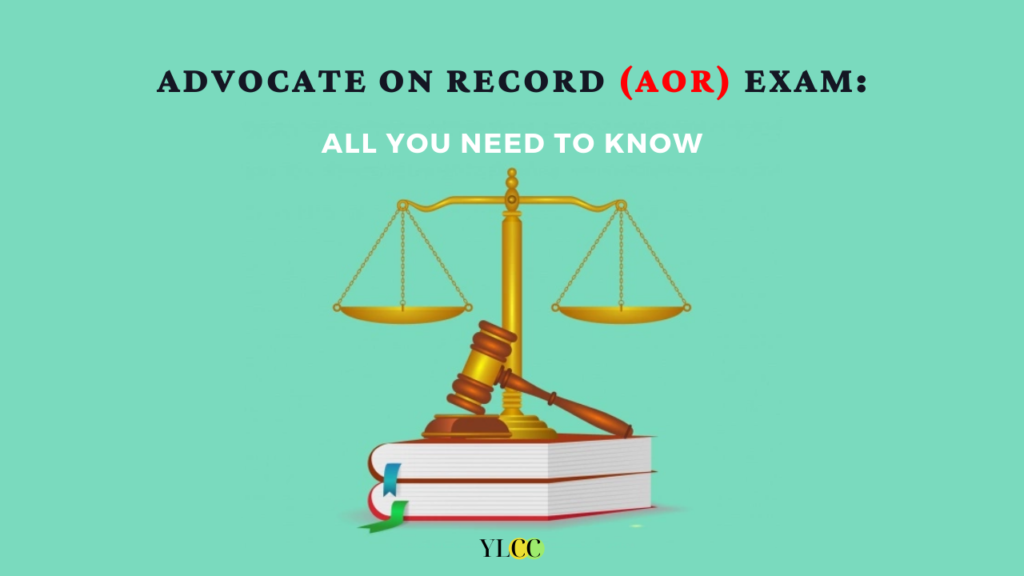
Advocate on Record is an advocate who is entitled under the Order IV of the Supreme Court Rules, 2013, framed under Article 145 of the Constitution, to act as well as to plead for a party in the Supreme Court of India. The AoR exam is extremely difficult and competitive where the passing rate is seldom beyond 20%.
In this article, YLCC brings you all the information regarding the exam. Read on!
TRAINING PRIOR TO THE EXAM
- The Advocate is to undergo one year training with Senior Advocate.
- He has to intimate to the Supreme Court that, he or she has started taking training with a Senior Advocate on the record because he or she intends to become an Advocate-on-record.
On completion of one year of preliminary training under a senior lawyer, the applicant-advocate has to appear for an examination conducted by the Supreme Court itself. The examination is usually held between May and June. The exam has four different papers containing a total of 27 question divided into four papers. Duration of each paper is 3 hours. 50% marks is prescribed for passing a paper and a combined of aggregate of 60% in all subjects is required.
ELIGIBILITY FOR THE AOR EXAM
- The advocate must have a practice for five years as an advocate.
- The Advocate has been borne on the roll of any State Bar Council for a period of not less than four years on the date of commencement of his training.
SYLLABUS FOR THE AOR EXAM
Paper- I (Practice & Procedure of the Supreme Court)
(i) Relevant provisions in the Constitution of India relating to the jurisdiction of the Court.
(ii) Supreme Court Rules and relevant provisions of Civil Procedure Code, Limitation Act and the General Principles of court fees Act.
Paper-II (Drafting)
Petitions for Special Leave and Statements of Cases, etc. Decrees & Orders and Writs, etc. This is to clarify that the syllabus includes:-
- petitions of appeal,
- plaint and written statement in a suit under Article 131 of the Constitution of India;
- review petitions under Article 137 of the Constitution of India;
- transfer petitions u/s 25 of the Civil Procedure Code;
- Article 139 of the Constitution of India and Section 406 of the Criminal Procedure Code, 1973;
- contempt petitions under Article 129 of the Constitution of India,
- interlocutory applications including criminal miscellaneous petitions for bail,
- condonation of delay,
- exemption from surrender,
- applications for revocation of special leave, etc.
Paper III (Advocacy and Professional Ethics)
- The Advocates Act and Cases reported under the Advocates Act, particularly disciplinary proceedings.
- Cases relating to the Contempt of Court involving Advocates.
- The Bar Council of India Rules.
- The Supreme Court Rules, 2013.
Paper – IV (Leading Cases) Head Notes of the Leading Cases (Paper-IV) will be made available by the Registry to the candidates in the Examination Hall at the time of Examination and the same should have to be returned immediately to the invigilators at the end of the Examination.






